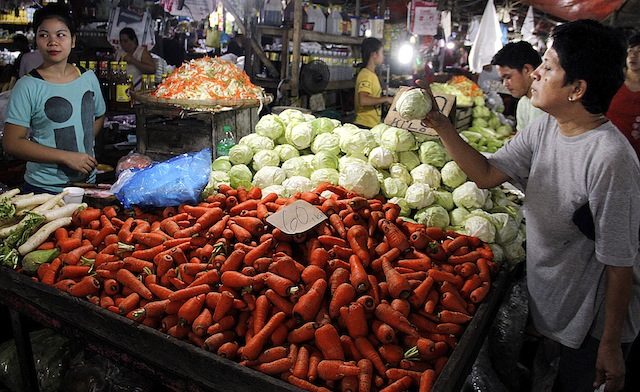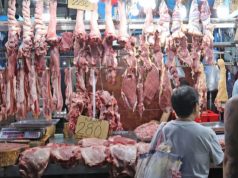MANILA – The country’s inflation rate slightly rose to 3.5 percent last October, a percentage point higher than the previous month’s 3.4 percent.
The Philippine Statistics Authority (PSA), an attached agency of the National Economic and Development Authority (NEDA), said the faster price adjustments in food and fuel drove headline inflation to rise.
Last month’s figure was within the forecast of the Bangko Sentral ng Pilipinas (BSP) of 3.2 percent to 3.7 percent, and is comparable with median market expectations of 3.5 percent.
Amid rising fuel, utility, and food prices, a BusinessWorld poll of 11 economists had earlier yielded a 3.5% median estimate for October, to possibly hit a three-year high.
The BusinessWorld said the 3.5% median estimate derived from its poll among 11 economists, if realized, would pick up from September’s 3.4% and the 2.3% reading a year ago, and would be the fastest since November 2014’s 3.7%.
According to PSA, core inflation, which excludes select volatile food and energy prices, slightly eased to 3.2 percent in October from 3.3 percent in September.
“We still expect full-year inflation to stay within our target of 2.0 to 4.0 percent. However, upside risks become more prominent as the holiday season approaches. This warrants close monitoring of the rising prices in domestic petroleum, as well as utility rates,” Socioeconomic Planning Secretary Ernesto M. Pernia said.
For the food subgroup, inflation was up to 3.8 percent from 3.7 percent in the previous month because of faster price increases in corn, meat and vegetables.
Impact of typhoons
Pernia, also NEDA director general, attributed higher prices, particularly for corn and vegetables, to the lingering effects of Typhoons Jolina and Paolo and Tropical Depression Maring.
He underscored the need for the government to be consistently on the watch for developments in climate conditions, considering that weather patterns and events have a direct impact on food supply and prices.
“We must also ensure a stable and sufficient level of the country’s rice stock. This is an important policy concern given that rice comprises a sizable portion of the CPI (consumer price index) basket. Deciding the appropriate timing of rice importation is vital to avoid supply disruptions. There is also a need to amend domestic laws to end the quantitative restrictions on rice,” he said.
Pernia added that crude oil prices may increase in the near-term due to the continuing increase in global oil demand.
Based on the October 2017 Commodity Markets Outlook report of the World Bank Group, energy prices are projected to rise by 4 percent in 2018.
“Upbeat consumer spending this holiday season is also expected to push prices up. Within the near-term, higher utility rates, increasing domestic fuel prices, and the depreciation of the peso may further exert upward pressures on inflation,” he said.










